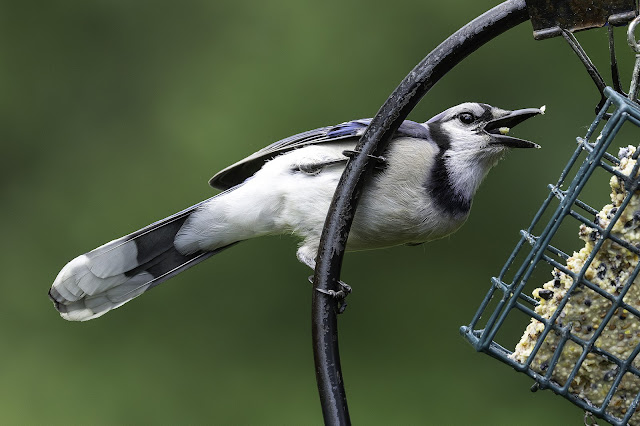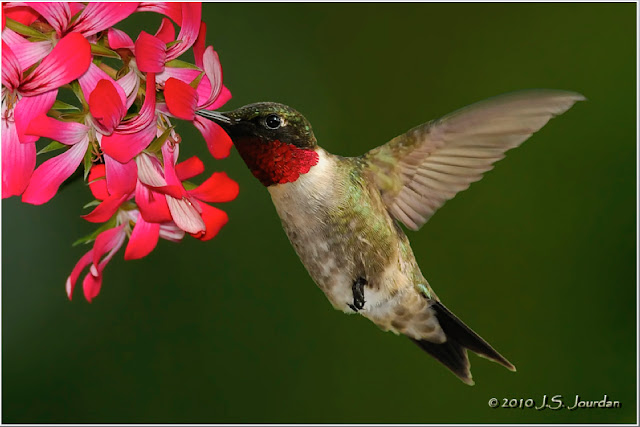Lesser Black-backed Gulls and possible Baltic Gull? - 15 Dec 2020
Robin and I took a drive to Monroe Co. to do a little pre-CBC scouting. I was hoping to get some digiscoping out of the morning as I haven't used the scope in weeks. We would start out a bit south of the Monroe, MI count circle and check gulls at Lotus Rd.
The open water was half-covered with ice and a nice flock of two hundred mixed Ring-billed and Herring Gulls were close to the road. Among them were a single (presumed) Great Black-backed Gull (3rd cycle?) and 4 Lesser Black-backed Gulls.
The LBBG's are always a challenge for me to photograph, so I took advantage of their proximity, grabbed the scope and digiscoped several birds while a Carolina Wren sang in the background. Yellow legs, smudgy head w/ dark patch over eyes is diagnostic for Lesser Black-backed Gulls (Larus fuscus) in winter, while their larger cousins (Great Black-backed Gulls) have diagnostic pink legs, blacker back feathers, and clean white heads in winter.
Lotus Rd. mudflats, Monroe, Michigan, US
Dec 15, 2020 8:00 AM - 8:20 AM
Protocol: Traveling
1.0 mile(s)
4 species
Ring-billed Gull (Larus delawarensis) 150
Herring Gull (Larus argentatus) 50
Great Black-backed Gull (Larus marinus) 1
Lesser Black-backed Gull (Larus fuscus) 4
View this checklist online at https://ebird.org/checklist/S1
This report was generated automatically by eBird v3 (https://ebird.org/home)
Dec 15, 2020 8:00 AM - 8:20 AM
Protocol: Traveling
1.0 mile(s)
4 species
Ring-billed Gull (Larus delawarensis) 150
Herring Gull (Larus argentatus) 50
Great Black-backed Gull (Larus marinus) 1
Lesser Black-backed Gull (Larus fuscus) 4
View this checklist online at https://ebird.org/checklist/S1
This report was generated automatically by eBird v3 (https://ebird.org/home)
Of interest on this bird was the small mirrors on the P10 primary. Adult Lesser Black-backed Gulls (Larus fuscus graellsii) in this region typically have a large mirror on P10 and a smaller mirror on P9.
I was flipping through Howell & Dunn's Gulls of the Americas (pp 191-193) and noticed that one photo showed L.f.fuscus with small mirrors on P10 (plate 27.26, p. 193) and the note "not recorded in North America", which peaked my interest. These Baltic Gulls (L.f.f.) appear slightly more slender than the L. f. graellsii birds that we apparently see, and do have the smaller mirrors on P10 and P9. This also brings into discussion the Heuglin's Gull (L. f. heuglini) or Siberian Gull that lacks(?) mirrors on P10. But further searching suggest that my bird may just be a sub-adult L.f.graellsii based on the amount of black on the mandible. Regardless, its an interesting, educating bird that highlights how gull identification can quickly spiral into a rabbit hole of identification and introduced me to a couple of new birds I wasn't even aware of. The pinkish feet on the yellow legs isn't helping the discussion, either...
As always, I'd love input from more experienced Larophiles.
Follow-up: I posted on the North American Gulls Facebook Page for comments and everyone pretty much agreed that it was a graellsii LBBG. Here are the comments:
Jerry, from looking at a few Baltic Gull pics on the dutchbirding.nl site, it seems that for that taxon the mantle is nearly as black as that of a GBBG, not slate gray like on your bird. That said, the other field marks do raise some interesting questions - Heuglin's Gull, anyone?
I think the small mirror on P10 on the bird under the blog can be attributed to the bird’s age/plumage, which is 3rd cycle. I agree with your consensus: graellsii. The mantle (and upperside as a whole) seems quite pale as well, and the head seems quite heavily marked.
The mantle on this bird is way way too pale for Baltic Gull. Also the bill is too thick and stubby.
Hi Jerry, the lesser black-backed gull that you have photographed for me is a graellsii. A baltic gull (fuscus) would be black on the back like a GBBG, small (mostly), slim, long winged, thin bill etc. See gull research for more on them.
Thank you all who weighed in. This has been a great learning experience.
The Pier at Luna Pier, Monroe, Michigan, US
Dec 15, 2020 9:00 AM - 9:20 AM
Protocol: Traveling
0.4 mile(s)
2 species
Ring-billed Gull (Larus delawarensis) 36
Lesser Black-backed Gull (Larus fuscus) 2
View this checklist online at https://ebird.org/checklist/S1
This report was generated automatically by eBird v3 (https://ebird.org/home)
Dec 15, 2020 9:00 AM - 9:20 AM
Protocol: Traveling
0.4 mile(s)
2 species
Ring-billed Gull (Larus delawarensis) 36
Lesser Black-backed Gull (Larus fuscus) 2
View this checklist online at https://ebird.org/checklist/S1
This report was generated automatically by eBird v3 (https://ebird.org/home)














